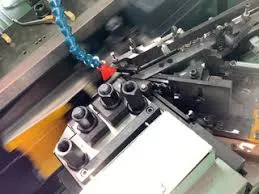
-
 Afrikaans
Afrikaans -
 Albanian
Albanian -
 Amharic
Amharic -
 Arabic
Arabic -
 Armenian
Armenian -
 Azerbaijani
Azerbaijani -
 Basque
Basque -
 Belarusian
Belarusian -
 Bengali
Bengali -
 Bosnian
Bosnian -
 Bulgarian
Bulgarian -
 Catalan
Catalan -
 Cebuano
Cebuano -
 Corsican
Corsican -
 Croatian
Croatian -
 Czech
Czech -
 Danish
Danish -
 Dutch
Dutch -
 English
English -
 Esperanto
Esperanto -
 Estonian
Estonian -
 Finnish
Finnish -
 French
French -
 Frisian
Frisian -
 Galician
Galician -
 Georgian
Georgian -
 German
German -
 Greek
Greek -
 Gujarati
Gujarati -
 Haitian Creole
Haitian Creole -
 hausa
hausa -
 hawaiian
hawaiian -
 Hebrew
Hebrew -
 Hindi
Hindi -
 Miao
Miao -
 Hungarian
Hungarian -
 Icelandic
Icelandic -
 igbo
igbo -
 Indonesian
Indonesian -
 irish
irish -
 Italian
Italian -
 Japanese
Japanese -
 Javanese
Javanese -
 Kannada
Kannada -
 kazakh
kazakh -
 Khmer
Khmer -
 Rwandese
Rwandese -
 Korean
Korean -
 Kurdish
Kurdish -
 Kyrgyz
Kyrgyz -
 Lao
Lao -
 Latin
Latin -
 Latvian
Latvian -
 Lithuanian
Lithuanian -
 Luxembourgish
Luxembourgish -
 Macedonian
Macedonian -
 Malgashi
Malgashi -
 Malay
Malay -
 Malayalam
Malayalam -
 Maltese
Maltese -
 Maori
Maori -
 Marathi
Marathi -
 Mongolian
Mongolian -
 Myanmar
Myanmar -
 Nepali
Nepali -
 Norwegian
Norwegian -
 Norwegian
Norwegian -
 Occitan
Occitan -
 Pashto
Pashto -
 Persian
Persian -
 Polish
Polish -
 Portuguese
Portuguese -
 Punjabi
Punjabi -
 Romanian
Romanian -
 Russian
Russian -
 Samoan
Samoan -
 Scottish Gaelic
Scottish Gaelic -
 Serbian
Serbian -
 Sesotho
Sesotho -
 Shona
Shona -
 Sindhi
Sindhi -
 Sinhala
Sinhala -
 Slovak
Slovak -
 Slovenian
Slovenian -
 Somali
Somali -
 Spanish
Spanish -
 Sundanese
Sundanese -
 Swahili
Swahili -
 Swedish
Swedish -
 Tagalog
Tagalog -
 Tajik
Tajik -
 Tamil
Tamil -
 Tatar
Tatar -
 Telugu
Telugu -
 Thai
Thai -
 Turkish
Turkish -
 Turkmen
Turkmen -
 Ukrainian
Ukrainian -
 Urdu
Urdu -
 Uighur
Uighur -
 Uzbek
Uzbek -
 Vietnamese
Vietnamese -
 Welsh
Welsh -
 Bantu
Bantu -
 Yiddish
Yiddish -
 Yoruba
Yoruba -
 Zulu
Zulu
CE Certified Three Die Thread Rolling Machine for Precision Manufacturing Solutions
Understanding CE Certification for 3 Die Thread Rolling Machines
In the realm of industrial manufacturing, thread rolling machines play a pivotal role in producing high-quality threaded components used across various applications, from automotive to aerospace. Among these machines, the 3 die thread rolling machine stands out due to its efficiency and precision in creating durable threads on fasteners and other parts. With the increasing globalization of trade, compliance with safety and quality standards has become paramount. One such standard is the CE certification, which ensures that products meet the necessary safety, health, and environmental protection requirements outlined by the European Union.
What is a 3 Die Thread Rolling Machine?
A 3 die thread rolling machine utilizes three dies to simultaneously form threads on a workpiece. This method is highly efficient, as it allows for the creation of threads in a single pass, which minimizes material waste and enhances production speed. These machines typically excel in manufacturing various threaded components, including screws, bolts, and nuts, from materials such as steel, aluminum, and brass.
Importance of CE Certification
CE certification signifies that a product adheres to European health, safety, and environmental protection standards. For manufacturers exporting their products to Europe or those operating within the European market, obtaining CE certification is not just a legal requirement but also a mark of quality assurance. In the case of a 3 die thread rolling machine, the certification involves rigorous testing and evaluation to ensure that the equipment is safe to use and environmentally friendly.
1. Safety Standards The primary focus of any CE certification process is to ensure that the machine meets safety standards. For thread rolling machines, this encompasses a range of factors, including operational safety, emergency shut-off features, and ergonomic design to minimize the risk of accidents for operators.
2. Health Considerations Machines often work with high levels of dust, noise, and potential exposure to hazardous materials. CE certification requires manufacturers to evaluate and minimize these risks, ensuring a safer working environment.
3. Environmental Impact Manufacturers must also consider the environmental impact of their machines. This includes evaluating energy efficiency, reducing emissions, and ensuring that the materials used are sustainable and safe for the environment.
ce certification 3 die thread rolling machine

Steps to Achieve CE Certification
The process of obtaining CE certification for a 3 die thread rolling machine can be complex and typically involves several stages
1. Product Assessment This initial step involves evaluating the machine against the relevant EU directives and harmonized standards. Manufacturers need to determine which standards apply, such as the Machinery Directive or the Low Voltage Directive.
2. Testing Once the applicable standards are identified, the machine undergoes a series of tests to confirm compliance. These tests can be conducted by the manufacturer or a third-party testing organization, known as a Notified Body. It is crucial to document all test results meticulously.
3. Technical Documentation Manufacturers must compile a technical file that includes design, production process, and testing information. This documentation serves as proof of compliance and is essential for conducting a conformity assessment.
4. Declaration of Conformity Upon successful compliance with all applicable standards and regulations, the manufacturer issues a Declaration of Conformity, signifying that the machine meets all CE requirements.
5. Affixing the CE Mark Finally, after obtaining certification, the CE mark can be affixed to the machine, allowing it to be sold within the European market.
Conclusion
CE certification for 3 die thread rolling machines is indispensable for ensuring safety, health, and environmental compliance in a competitive global market. As manufacturers increasingly focus on quality assurance and regulatory compliance, achieving CE certification not only enhances marketability but also builds consumer trust. In an industry where precision and reliability are critical, investing in CE-certified machinery is a testament to a company’s commitment to excellence and safety. With the right approach, manufacturers can navigate the certification process confidently, paving the way for successful operations in Europe and beyond.
